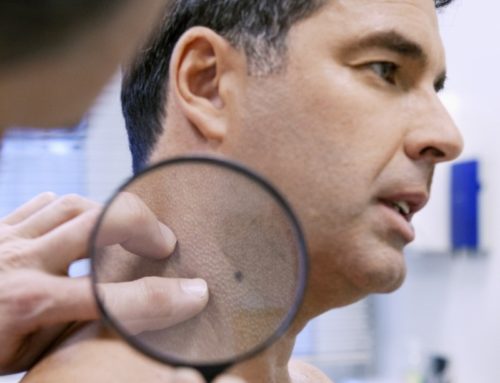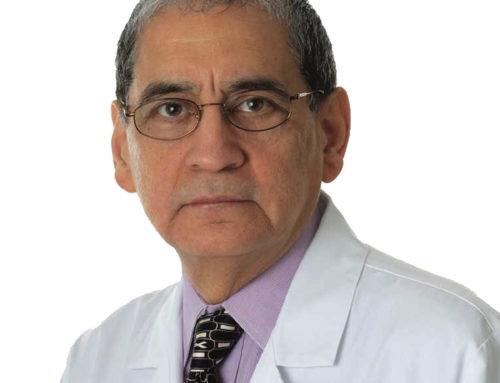Pancreatic cancer is the 4th leading cause of cancer death in both men and women. Whether it’s someone you know, someone you love or someone you’ve heard about, like Michael Landon or Patrick Swayze, and more recently Alex Trebek and Ruth Bader Ginsberg, most of us have been touched by pancreatic cancer. It’s often silent in the early stages, making it harder to diagnose when the cancer may be more receptive to treatment.
Symptoms of Pancreatic Cancer
Pancreatic cancer symptoms can be subtle, and many people ignore them or think they are due to another less serious medical condition. The most common and classic symptom of pancreatic cancer is painless jaundice, which is the yellowing of the skin or eyes.
“Sometimes symptoms will get the attention of the person affected, but it’s often brought up to the patient by the people around them who notice it first,” says Julie Koffron, MD, fellowship trained pancreatic surgeon with University Surgical Associates. “After talking through how they’ve been feeling over the past few months, many people will recognize other vague symptoms that could have helped these individuals’ cancer be identified at an earlier stage.”
Watch for Unexplained Weight Loss
The pancreas is a long, flat gland located behind the stomach and is surrounded by the small intestine, liver, spleen and gallbladder. This small gland plays an important role in your body – controlling blood sugar with insulin and releasing digestive enzymes to help digest fats and proteins in your food. Without those enzymes, people will have oily, greasy or often floating stools because the body isn’t adequately absorbing the nutrients it needs – which could lead to unexplained weight loss.

In addition to unexplained weight loss, other symptoms of pancreatic cancer can include:
• bloating or loose stools
• blood clots
• fatigue
• new onset diabetes
• mid to lower back pain
• poor appetite or feeling full too quickly
• unexplained intense, persistent itching
• upper abdominal pain
Dr. Koffron notes that weight loss is something that many people struggle with during adulthood. If losing weight suddenly becomes too easy or if perhaps the weight is coming off faster than expected based on your level of effort, that could indicate a problem.
Risk Factors of Pancreatic Cancer
“We know that smoking, morbid obesity, family history and even poor oral hygiene can be considered risk factors for pancreatic cancer. These individuals should be particularly aware of any unusual symptoms that may arise,” says Dr. Koffron. “Any lump that is felt and stays in the abdomen should be discussed with your doctor. And pancreatitis, which is an inflammation of the pancreas, can also be harbinger of a tumor.”
Listen to your Body
Another important point about early diagnosis is that that bloodwork often won’t identify pancreatic cancer or show any signs of a problem at first. That’s why persistence and repeat testing may be important for diagnosis. When experiencing ongoing symptoms, returning to your doctor or sometimes pursuing another specialist opinion, such as a gastroenterologist, is also important.
There is no blood test that will rule out the presence of a cancer and it may be present for some time until changes like elevated liver enzymes or Bilirubin (cause of jaundice) or development of anemia are recognized. Doctors may also order a CT scan of the abdomen, which can diagnose pancreatic cancer if done in a way that that highlights the presence of a tumor within the pancreas.
Pancreas Cancer Treatment
If you or a loved one has been diagnosed with pancreatic cancer, choosing a fellowship trained pancreatic or HPB surgeon ensures the provide contemporary management of these problems – including the use of minimally invasive surgery and other techniques as opposed to open surgery when appropriate. Studies have shown that outcomes are better in terms of cancer complications overall when you seek treatment from a highly specialized surgeon like Dr. Koffron.
Although pancreas cancer can come back, surgery to remove the affected part of the pancreas along with the immediately surrounding organs can offer the chance for a cure in some cases. Combining pancreatic cancer surgery with chemotherapy can improve chances of survival even further.

“For this reason, it’s very important for all cancer specialists to work together, each lending their particular expertise to provide a tailored treatment plan. Using multidisciplinary care, we bring together surgical experts, medical oncology, radiation oncology, pathology and gastroenterology to determine the best course of action. While treatment remains difficult, there is hope for people with pancreatic cancer,” Dr. Koffron says. “No matter the cancer diagnosis or organ system, the highly trained surgeons at USA use this collaborative approach combined with advanced treatment options to give our patients the very best cancer care available today.”






Leave A Comment